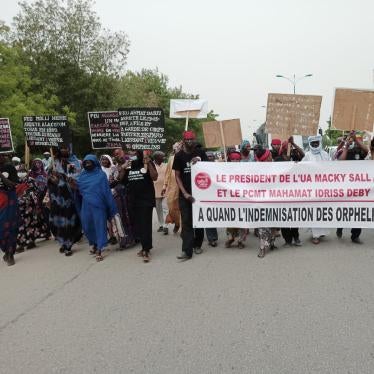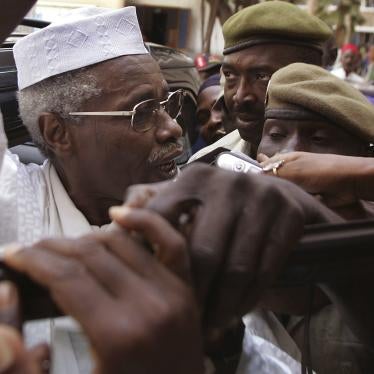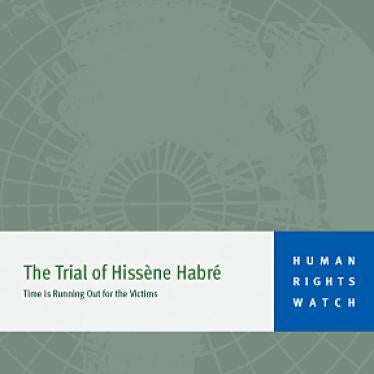PARIS - Belgium has filed an international lawsuit against Senegal, the latest step in a long effort to prosecute the exiled former president of Chad on charges of war crimes, torture and crimes against humanity.
The Belgian government argues that Senegal, where Chad's former leader, Hissène Habré, is living in comfortable exile, must either start its own planned trial or extradite him to face the charges in a Belgian court. Because Senegal has done neither, it is violating international law, the Belgian lawsuit said.
The complaint was filed on Thursday at the International Court of Justice, the United Nations' highest court, which sits in The Hague and deals with disputes between nations.
"We're hoping this will speed things up, because victims of the regime have been fighting for a trial for 18 years," said Reed Brody, a lawyer for Human Rights Watch who has advised Chadian rights groups. "This case has had so many setbacks, it's only through the persistence of Chadian victims that it has survived."
Mr. Habré fled to Dakar, Senegal's capital, when he was overthrown in 1990 after eight years of oppressive rule.
A Chadian truth commission said in 1992 that his government had killed up to 40,000 opponents and tortured many others. Survivors of the prisons run by the dreaded political police have described atrocities, including the torture and killing of fellow prisoners.
Mr. Habré's government received extensive support from Western countries, including the United States and France, which saw Chad, a former French colony, as a bastion against neighboring Libya. The Reagan administration provided covert support to help Mr. Habré take power in 1982 and continued to provide him with military aid.
Mr. Habré was first indicted in Senegal in 2000, but the government quickly decided that it would not deal with the case. Chadian victims then filed complaints in Belgian courts, which accepted the case on the principle that grave human rights crimes qualified for "universal jurisdiction."
After four years of investigations, Belgium issued an international arrest warrant for Mr. Habré in 2005. But rather than extraditing him, Senegal sought advice from the African Union. That group called on Senegal to prosecute the case "in the name of Africa," rather than letting a trial be held in Europe.
Since then, Senegal has adapted its laws and Constitution to make prosecution possible and has said it will try Mr. Habré if international donors pay all the costs, estimated at nearly $36 million.
No contributions have been offered by the African Union, which sought the trial, but Belgium, France, the Netherlands and Switzerland, among others, have pledged money.
European governments have asked for a detailed budget and prosecution plan, but diplomats said Senegal was stalling. Fearing that Mr. Habré may flee, Belgium has asked the court in The Hague for an urgent order to Senegal to keep the former president under house arrest and close surveillance.
Human Rights Watch has lobbied for the trial to start because many of the victims and witnesses are old and others have died. The group also said that victims had been threatened by some of Mr. Habré's supporters in Chad and that a lawyer of one of the victims had been severely wounded by a grenade.


